- Home
- Site Index
- About Me
-
My Books
- Book List & Themes
- Strictly for Adults Novels >
-
Tales from Portlaw
>
- No Need to Look for Love
- 'The Love Quartet' >
-
The Priest's Calling Card
>
- Chapter One - The Irish Custom
- Chapter Two - Patrick Duffy's Family Background
- Chapter Three - Patrick Duffy Junior's Vocation to Priesthood
- Chapter Four - The first years of the priesthood
- Chapter Five - Father Patrick Duffy in Seattle
- Chapter Six - Father Patrick Duffy, Portlaw Priest
- Chapter Seven - Patrick Duffy Priest Power
- Chapter Eight - Patrick Duffy Groundless Gossip
- Chapter Nine - Monsignor Duffy of Portlaw
- Chapter Ten - The Portlaw Inheritance of Patrick Duffy
- Bigger and Better >
- The Oldest Woman in the World >
-
Sean and Sarah
>
- Chapter 1 - 'Return of the Prodigal Son'
- Chapter 2 - 'The early years of sweet innocence in Portlaw'
- Chapter 3 - 'The Separation'
- Chapter 4 - 'Separation and Betrayal'
- Chapter 5 - 'Portlaw to Manchester'
- Chapter 6 - 'Salford Choices'
- Chapter 7 - 'Life inside Prison'
- Chapter 8 - 'The Aylesbury Pilgrimage'
- Chapter 9 - Sean's interest in stone masonary'
- Chapter 10 - 'Sean's and Tony's Partnership'
- Chapter 11 - 'Return of the Prodigal Son'
- The Alternative Christmas Party >
-
The Life of Liam Lafferty
>
- Chapter One: ' Liam Lafferty is born'
- Chapter Two : 'The Baptism of Liam Lafferty'
- Chapter Three: 'The early years of Liam Lafferty'
- Chapter Four : Early Manhood
- Chapter Five : Ned's Secret Past
- Chapter Six : Courtship and Marriage
- Chapter Seven : Liam and Trish marry
- Chapter Eight : Farley meets Ned
- Chapter Nine : 'Ned comes clean to Farley'
- Chapter Ten : Tragedy hits the family
- Chapter Eleven : The future is brighter
-
The life and times of Joe Walsh
>
- Chapter One : 'The marriage of Margaret Mawd and Thomas Walsh’
- Chapter Two 'The birth of Joe Walsh'
- Chapter Three 'Marriage breakup and betrayal'
- Chapter Four: ' The Walsh family breakup'
- Chapter Five : ' Liverpool Lodgings'
- Chapter Six: ' Settled times are established and tested'
- Chapter Seven : 'Haworth is heaven is a place on earth'
- Chapter Eight: 'Coming out'
- Chapter Nine: Portlaw revenge
- Chapter Ten: ' The murder trial of Paddy Groggy'
- Chapter Eleven: 'New beginnings'
-
The Woman Who Hated Christmas
>
- Chapter One: 'The Christmas Enigma'
- Chapter Two: ' The Breakup of Beth's Family''
- Chapter Three: From Teenager to Adulthood.'
- Chapter Four: 'The Mills of West Yorkshire.'
- Chapter Five: 'Harrison Garner Showdown.'
- Chapter Six : 'The Christmas Dance'
- Chapter Seven : 'The ballot for Shop Steward.'
- Chapter Eight: ' Leaving the Mill'
- Chapter Ten: ' Beth buries her Ghosts'
- Chapter Eleven: Beth and Dermot start off married life in Galway.
- Chapter Twelve: The Twin Tragedy of Christmas, 1992.'
- Chapter Thirteen: 'The Christmas star returns'
- Chapter Fourteen: ' Beth's future in Portlaw'
-
The Last Dance
>
- Chapter One - ‘Nancy Swales becomes the Widow Swales’
- Chapter Two ‘The secret night life of Widow Swales’
- Chapter Three ‘Meeting Richard again’
- Chapter Four ‘Clancy’s Ballroom: March 1961’
- Chapter Five ‘The All Ireland Dancing Rounds’
- Chapter Six ‘James Mountford’
- Chapter Seven ‘The All Ireland Ballroom Latin American Dance Final.’
- Chapter Eight ‘The Final Arrives’
- Chapter Nine: 'Beth in Manchester.'
- 'Two Sisters' >
- Fourteen Days >
-
‘The Postman Always Knocks Twice’
>
- Author's Foreword
- Contents
- Chapter One
- Chapter Two
- Chapter Three
- Chapter Four
- Chapter Five
- Chapter Six
- Chapter Seven
- Chapter Eight
- Chapter Nine
- Chapter Ten
- Chapter Eleven
- Chapter Twelve
- Chapter Thirteen
- Chapter Fourteen
- Chapter Fifteen
- Chapter Sixteen
- Chapter Seventeen
- Chapter Eighteen
- Chapter Nineteen
- Chapter Twenty
- Chapter Twenty-One
- Chapter Twenty-Two
-
Celebrity Contacts
-
Thoughts and Musings
- Bereavement >
- Nature >
-
Bill's Personal Development
>
- What I'd like to be remembered for
- Second Chances
- Roots
- Holidays of Old
- Memorable Moments of Mine
- Cleckheaton Consecration
- Canadian Loves
- Mum's Wisdom
- 'Early life at my Grandparents'
- Family Holidays
- 'Mother /Child Bond'
- Childhood Pain
- The Death of Lady
- 'Soldiering On'
- 'Romantic Holidays'
- 'On the roof'
- Always wear clean shoes
- 'Family Tree'
- The importance of poise
- 'Growing up with grandparents'
- Love & Romance >
- Christian Thoughts, Acts and Words >
- My Wedding
- My Funeral
- Audio Downloads
- My Singing Videos
- Bill's Blog
- Contact Me
'The Love Bridge'
Part One: 'Portlaw ways'
Part One: 'Portlaw ways'

I was once told of an old wooden bridge that can be found off a beaten walker's track near a place called Portlaw in County Waterford, Ireland. Over the years, the bridge has come to be known as the 'Love Bridge'. It crosses a river and at one side of the river lies a little hamlet where five or six old Irish cottages and their elderly residents live. The few cottage occupants keep to themselves and rarely speak to passing travellers. When they do deign to talk, it is always in their Gaelic mother tongue; a language that few Irish people know how to speak today.
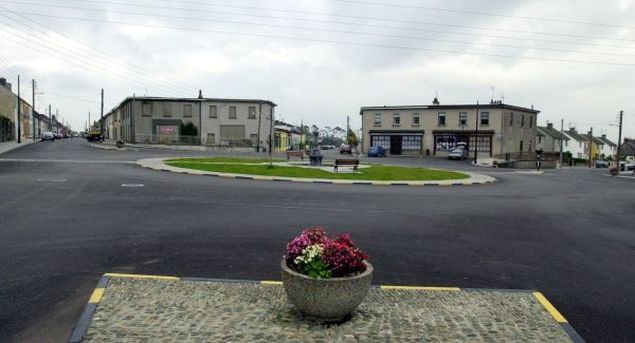
Portlaw is virtually the last place you come to before falling into the heart of the rebel south. It is over 100 miles from Dublin and before 1930, its cinema arrived once weekly to serve their patrons from the back of a lorry. 'Portlaw' was even short-listed by the Oxford English Dictionary as a definition of the word 'Remote.'

Portlaw is home to a variety of people from all walks of life. Some, who are famous in their own spheres of interest, came there for its tranquil atmosphere. Others were attracted by its wonderful beaches in Tramore, and most fell in love with the fascinating wildlife that can be found up Curramough and its thousands of acres of unspoiled rural countryside that embrace the landscape.
Even the weather is said to be far easier on the lungs than the rest of Ireland. Most of the people born there will stay there and live out a modest existence, if any work presents itself. Those villagers who leave because of the absence of work and move elsewhere, never lose touch with its beauty, the image of which, forever remains with them in their hearts and minds.
Even the weather is said to be far easier on the lungs than the rest of Ireland. Most of the people born there will stay there and live out a modest existence, if any work presents itself. Those villagers who leave because of the absence of work and move elsewhere, never lose touch with its beauty, the image of which, forever remains with them in their hearts and minds.

Like many a secluded part of the rustic countryside, the people born in Portlaw have their own traditions and rules that distinguish them from other places on the Irish map. One of their proud boasts is that marriage is usually for life, be it good or bad in its contract making.
Before you run off with the idea of all the people of Portlaw being good people of sound moral principle, allow me to gently pull you back with the cord of reality. Whereas it is true in most cases, that for the Portlaw person, marriage is for life, in situations where the relationship doesn't work out to the satisfaction of both parties in the union, one usually winds up dead anyway; invariably in suspicious circumstances!
One would find it hard to believe how easy it is to be walking the edge of the swift flowing river up Curramorgh on a fine summer's day, when suddenly, close to the river's eddy (where many a swimmer has been sucked to their death by the whirlpool), the ground beneath a rambler's feet makes them lose balance and stumble; resulting in the unfortunate person falling to a watery death. Naturally, when such fortuitous accidents occur, there is invariably no evidence that the unhappy marriage partner to the deceased was present during those fatal moments or was responsible for their death. You see, Portlaw has become known of being a place where 'happy accidents' sometime occur and simply living in Portlaw and being of good Catholic stock, is in itself an alibi!
xxxxxxxxxxxxxxxxxxxxxxxxxxxxxxxxxxxxxxxxxxxxxxxxxxxxxxxxxxxxxxxxxxxxxxxxxxxxxxxxxxxxxx
Before you run off with the idea of all the people of Portlaw being good people of sound moral principle, allow me to gently pull you back with the cord of reality. Whereas it is true in most cases, that for the Portlaw person, marriage is for life, in situations where the relationship doesn't work out to the satisfaction of both parties in the union, one usually winds up dead anyway; invariably in suspicious circumstances!
One would find it hard to believe how easy it is to be walking the edge of the swift flowing river up Curramorgh on a fine summer's day, when suddenly, close to the river's eddy (where many a swimmer has been sucked to their death by the whirlpool), the ground beneath a rambler's feet makes them lose balance and stumble; resulting in the unfortunate person falling to a watery death. Naturally, when such fortuitous accidents occur, there is invariably no evidence that the unhappy marriage partner to the deceased was present during those fatal moments or was responsible for their death. You see, Portlaw has become known of being a place where 'happy accidents' sometime occur and simply living in Portlaw and being of good Catholic stock, is in itself an alibi!
xxxxxxxxxxxxxxxxxxxxxxxxxxxxxxxxxxxxxxxxxxxxxxxxxxxxxxxxxxxxxxxxxxxxxxxxxxxxxxxxxxxxxx

Allow me to take you back to the year 1965 and the old wooden 'Love Bridge', where our story begins. Each year, rarely one day goes by when a rose of remembrance is not fastened to the top strut in the middle of the bridge in recognition of someone's past love. The roses are of many different shades and colours, from the lightest of pinks to the deepest crimson, and through to the darkest purple and the blackest of blacks. The flower of remembrance fastened to the wooden rail is always a single rose; there being no other bloom that speaks so clear its message.
The commemorative rose is put up on the 'Day of Remembrance' and is taken down by the dawn of the next day, yielding its place to the next commemorative rose to be fastened there. The 'Day of Remembrance' falls not on the annual anniversary of a loved one's death, but upon the anniversary of their burial. This was agreed upon by the villagers many years ago as being the best compromise to a tricky situation they faced. You see, for administration purposes, whereas the church could not determine the day a person died, it was within the means of the parish to determine the date of their burial. This definition of 'Remembrance Day' by Portlaw citizens enabled the 'Love Bridge' to represent a tabernacle of true love for one full day annually, for one bereaved person only on that day, and for no other.
To avoid any crossover or ill will occurring between bereaved villagers whose loved had ones died on the same day and month of any year, Toby, the parish record keeper and ex grave-yard digger, came to the rescue. His prime task was to ensure that no two parish burials ever took place on the same date in any church calendar year. To facilitate this arrangement, occasionally someone's burial needed to be postponed a day or two and sometimes, even longer. There was a time during 1940, when, following a number of deaths after an outbreak of influenza, the undertaker and grave digger for the Village of Portlaw was inundated with work. The only way around the problem, which also respected the 'Love Bridge Calendar,' was to mummify half the corpses until they could be buried sometime within the following seven weeks, upon individual dates that fell available and which had not been taken.
The commemorative rose is put up on the 'Day of Remembrance' and is taken down by the dawn of the next day, yielding its place to the next commemorative rose to be fastened there. The 'Day of Remembrance' falls not on the annual anniversary of a loved one's death, but upon the anniversary of their burial. This was agreed upon by the villagers many years ago as being the best compromise to a tricky situation they faced. You see, for administration purposes, whereas the church could not determine the day a person died, it was within the means of the parish to determine the date of their burial. This definition of 'Remembrance Day' by Portlaw citizens enabled the 'Love Bridge' to represent a tabernacle of true love for one full day annually, for one bereaved person only on that day, and for no other.
To avoid any crossover or ill will occurring between bereaved villagers whose loved had ones died on the same day and month of any year, Toby, the parish record keeper and ex grave-yard digger, came to the rescue. His prime task was to ensure that no two parish burials ever took place on the same date in any church calendar year. To facilitate this arrangement, occasionally someone's burial needed to be postponed a day or two and sometimes, even longer. There was a time during 1940, when, following a number of deaths after an outbreak of influenza, the undertaker and grave digger for the Village of Portlaw was inundated with work. The only way around the problem, which also respected the 'Love Bridge Calendar,' was to mummify half the corpses until they could be buried sometime within the following seven weeks, upon individual dates that fell available and which had not been taken.
Part Two: 'Charles Marie, Botonist'

One year, a botanist called Charles Marie, whose parents had been born in Portlaw, went back to their homeland to research the flowers and plant life there for a book he intended to write. Charles' father, who had introduced him to the love of all plant life as a growing child, was forever telling his son that the area surrounding the Village of Portlaw was rich in flower and plant, some so rare that they grew in no other part of Ireland or the British mainland. Never having visited the village where his parents and grandparents had been brought up, Charles decided to kill two birds with one stone and spend one full year there, researching his book and getting acquainted with Portlaw's residents.

When Charles arrived, initially he seemed disappointed with the smallness of the village, which on the face of it, seemed more like a one- horse town as opposed to a place that one would eagerly write home about. Like many a stranger to Portlaw though, Charles had made that common mistake of putting the cart before the horse and allowing his first impression to distort the reality that followed. Little did he know of the wiliness of its villagers, the suspicious facets of its customs and the untold beauty and mystery of its surrounding rivers, streams, hills, hidden valleys and walk ways. Never could he have imagined the wildness; the sheer breath-taking vision of Portlaw in the soft mist of morning or the number of rare plants that snuggled comfortably between the tall common grasses among the verges of country lanes and along the sides of farmer's fields.
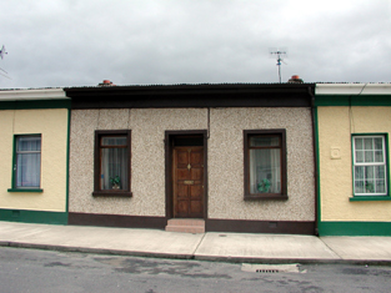
Charles Marie found lodgings at 14, William Street, with the Widow O'Shea. Milly O'Shea was to any stranger's way of thinking, too young to be a widow and too attractive a woman to stay one for too long. She was a mere 24 years of age and had only been married for two years when her husband, Brendan, was knocked to the ground by a runaway dray cart, heavily loaded with barrels of ale for 'The Cotton Mill Pub', situated to the left of 'The Square.' The huge cart wheels had run over Brendan and crushed his chest, before two heavy beer barrels then rolled off the cart, fell on top of him and finished him off.
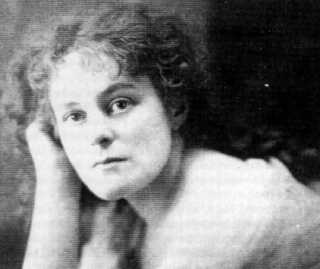
Milly was overcome with grief and loss, especially as she was carrying their first child, which she subsequently lost before its birth with the amount of distress she suffered. Having been left with virtually no money and no apparent means of earning any, her future looked very bleak. She had hoped to receive some compensation from the brewery in question to whom the dray cart belonged, but because her husband Brendan had been day dreaming and inattentive as he crossed the road on that fatal day, she didn't get a penny and even needed to borrow money for his burial costs. It was adjudged that whereas, the runaway horse and cart had been 'An act of God' (the horse having been badly stung by a bee before it bolted), the act of walking into it as it bolted down the street clearly demonstrated inattentiveness and negligence on the part of Brendan.
Just before leaving the house that morning to go to work, Brendan had been told by his wife that she was expecting a baby which they had been trying for since their wedding day. Upon leaving the house, Brendan was simply over the moon with the happy news of becoming a father and all he could think about was the child's impending birth. Consequently, as Brendan crossed the road in a reverie, he walked straight into the passage of the runaway horse and cart. Poor Brendan never knew what hit him!
Just before leaving the house that morning to go to work, Brendan had been told by his wife that she was expecting a baby which they had been trying for since their wedding day. Upon leaving the house, Brendan was simply over the moon with the happy news of becoming a father and all he could think about was the child's impending birth. Consequently, as Brendan crossed the road in a reverie, he walked straight into the passage of the runaway horse and cart. Poor Brendan never knew what hit him!
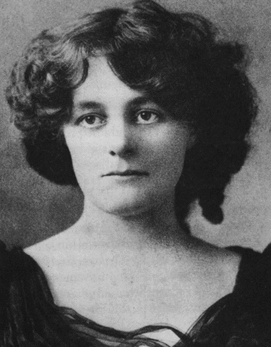
With nature being as it is, especially where there appears to be no natural hindrance to the progression of a loving relationship between a couple of like mind and willing heart, eight months after she had taken in her lodger, Milly O'Shea found herself pregnant again with child. While she knew that the village would gossip mercilessly once they found out that its conception was not 'immaculate', she decided there would be no need to tell them before she started to show in four months' time; by which stage, she and Charles would have their future plans mapped out. So, in the meantime, as far as the rest of Portlaw and the parish priest was concerned, everything inside number 14 William Street was above board and would require no special mention inside the confessional box. Just to keep up appearances, the widow and Charles never showed each other any public affection and the bed in Charles' bedroom was always left unmade, just in case any nosy parker decided to pop their head in!
Each day over the first year that Charles spent in Milly's house, she would pack up sandwiches which he would take with him on his daily walks of exploration, and after they had fallen in love, each night the couple would relate to each other how they'd spent their day apart, before settling down in each other's arms.
xxxxxxxxxxxxxxxxxxxxxxxxxxxxxxxxxxxxxxxxxxxxxxxxxxxxxxxxxxxxxxxxxxxxxxxxxxxxxxxxxxxxxx
Each day over the first year that Charles spent in Milly's house, she would pack up sandwiches which he would take with him on his daily walks of exploration, and after they had fallen in love, each night the couple would relate to each other how they'd spent their day apart, before settling down in each other's arms.
xxxxxxxxxxxxxxxxxxxxxxxxxxxxxxxxxxxxxxxxxxxxxxxxxxxxxxxxxxxxxxxxxxxxxxxxxxxxxxxxxxxxxx
On August 10th, 1965, a few days after Charles had first come to Portlaw and during one of his daily walks, Charles occasioned to cross the old wooden bridge for the first time, and in its centre, was fastened a single rose of off white and subtle pink. Even the leaves of the stalk it was attached to were beautiful in their own right. There were three leaves of dark green and one of rustic red that set off the rose offering to perfection. It was obvious to Charles that the single rose was a flower symbolising someone's lost love, a floral offering that had been suitably placed on the 'Love Bridge' in remembrance.

During the months ahead, to complete his research, Charles used to spend up to six or seven hours daily walking across moorland, uphill and down dale to locate as many plant species as possible. Most of his evenings would be spent in the local pub talking to the all the older men and women there who'd often tell him where precisely to look for this type of plant or that sort of flower and heather. Charles found the oldest residents of Portlaw to be his greatest asset in completing the research for his book and helping him to map out the following day's walk.
Over the remaining eleven months of his stay in Portlaw, every single day Charles would see a single rose fastened to the rail of the wooden bridge. Most of the roses would be red in shade while some would be white, some yellow, and quite a few in peach. The old timer's in the pub would frequently ask him where his travels had taken him that day and what he'd seen. Often, when Charles told them about another single rose he'd seen fastened to the wooden bridge, some villager would know who'd placed it there, along with the name of the deceased person remembered and the known circumstances of their death.
Over the remaining eleven months of his stay in Portlaw, every single day Charles would see a single rose fastened to the rail of the wooden bridge. Most of the roses would be red in shade while some would be white, some yellow, and quite a few in peach. The old timer's in the pub would frequently ask him where his travels had taken him that day and what he'd seen. Often, when Charles told them about another single rose he'd seen fastened to the wooden bridge, some villager would know who'd placed it there, along with the name of the deceased person remembered and the known circumstances of their death.
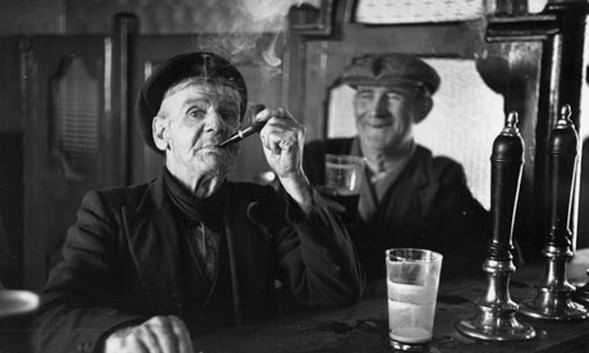
Charles was fascinated with their depth of knowledge about anyone or anything to do with community life in and around Portlaw. It was as though all movement of every person in the small village, where, when, who with and with what purpose, was common knowledge between the church gates and pub entrance.
Between them, Charles could always find some villager who could identify the remembered person by the colour of the rose and the date of the anniversary it was seen attached to the wooden bridge. Also, being familiar with the language of roses, Charles was able to build up a pretty accurate picture of the message of love that the bereaved person was communicating to their dearly departed.
Between them, Charles could always find some villager who could identify the remembered person by the colour of the rose and the date of the anniversary it was seen attached to the wooden bridge. Also, being familiar with the language of roses, Charles was able to build up a pretty accurate picture of the message of love that the bereaved person was communicating to their dearly departed.

Charles knew that the rose is the most popular of all English flowers. It has a much richer heritage of romance than any other flower ever grown on British soil. No single bloom has ever been used to convey so many different messages, which only the heart giving and receiving the rose, knows the full meaning of. The most common interpretation of the rose's meaning is one of deep affection and love. A single red rose communicates unchanging and everlasting love; a love of eternal devotion.

A single white rose conveys the message of innocence, purity and peace. The villagers told Charles that when Dave Bradbury first married, he was pleased to have selected a pure and chaste Catholic woman with no blemish in her past. Though Dave's wife, Prudence was a mighty attractive woman, she could never quite bring herself to embrace 'doing it'. Hence the marriage was never consummated. Whatever her husband Dave did in his efforts to improve their relationship, nothing worked. Four years into their marriage, his wife Prudence died, having poisoned herself on some dodgy mushrooms that she ate. Six months after her funeral, Dave Bradbury married a buxom milkmaid from Clonmel and they had six healthy children to their union. Charles was told that each year, on February 5th, Dave places a white flower of remembrance on the 'Love Bridge' and wishes that his innocent and pure wife Prudence now knows peace.

Over his year's stay in Portlaw, Charles brushed up on his learning regarding the messages conveyed by a single rose. He learned that the shade of burgundy meant an 'unconscious love', and that such a rose might be left by a secret love who had never declared their feelings for the other person before they died.
Charles learned from the locals that during his life, Percy Place had the misfortune to fall in love with Rosie Downs, the wife of a Waterford butcher. Only once did Percy manage to conjure up the bravery to tell Rosie of his love for her. It was during one Saturday morning when she was weighing him out 2 pound of sausages while her husband George was carrying a half a pig from the freezer. Percy had no intention of going through the rest of his life being afraid to declare his love for Rosie, despite the fact that she was married and technically unavailable. Although Rosie had always held a soft spot for Percy and would willingly have accepted any proposal had she still been single, being married to another man made her too proper a woman to respond to Percy in a manner that identified her real feelings for him or broke her marriage vows. Smilingly, she quickly thanked Percy for his lovely compliment and reminded him that she had a husband and had vowed in church to remain married in the eyes of God 'until death do they part'.
Just at that moment, her husband returned inside the shop and noticed the blush on his wife's face as she bade 'good day' to Percy Place. George Downs knew his wife inside out. He knew her to be as innocent and as proper as the day she was born. Why, she had even blushed up the very first time he kissed her, and it took almost the first year of their marriage before she would get undressed at bedtime in his presence. There was no such thing as Rosie ever holding onto a guilty secret, as her red face would reflect the honesty within and always be an instant giveaway. All the rest of that day, seeing his wife's continued embarrassment, and sensing that the words or actions of Percy Place had been responsible for her discomfort, George refused to let the matter rest until his wife had told him what precisely had transpired earlier between herself and Percy. In an attempt to put the matter to rest, Rosie Downs eventually felt obliged to tell her husband all that Percy had said to her, along with the precise nature of her response.
Charles learned from the locals that during his life, Percy Place had the misfortune to fall in love with Rosie Downs, the wife of a Waterford butcher. Only once did Percy manage to conjure up the bravery to tell Rosie of his love for her. It was during one Saturday morning when she was weighing him out 2 pound of sausages while her husband George was carrying a half a pig from the freezer. Percy had no intention of going through the rest of his life being afraid to declare his love for Rosie, despite the fact that she was married and technically unavailable. Although Rosie had always held a soft spot for Percy and would willingly have accepted any proposal had she still been single, being married to another man made her too proper a woman to respond to Percy in a manner that identified her real feelings for him or broke her marriage vows. Smilingly, she quickly thanked Percy for his lovely compliment and reminded him that she had a husband and had vowed in church to remain married in the eyes of God 'until death do they part'.
Just at that moment, her husband returned inside the shop and noticed the blush on his wife's face as she bade 'good day' to Percy Place. George Downs knew his wife inside out. He knew her to be as innocent and as proper as the day she was born. Why, she had even blushed up the very first time he kissed her, and it took almost the first year of their marriage before she would get undressed at bedtime in his presence. There was no such thing as Rosie ever holding onto a guilty secret, as her red face would reflect the honesty within and always be an instant giveaway. All the rest of that day, seeing his wife's continued embarrassment, and sensing that the words or actions of Percy Place had been responsible for her discomfort, George refused to let the matter rest until his wife had told him what precisely had transpired earlier between herself and Percy. In an attempt to put the matter to rest, Rosie Downs eventually felt obliged to tell her husband all that Percy had said to her, along with the precise nature of her response.

Three months later, Percy Place suddenly disappeared from Portlaw life. Unknown to the villagers of Portlaw, he had been murdered with a butcher's blade up Curraghmore, but his death went undetected and the remains of his body was never discovered. The killer had seemingly dismembered his body and in true Sweeny Todd manner, minced up his flesh and introduced a new range of pork pies and Gaelic sausage that went down extremely well with the Waterford locals. As for not seeing Percy again in Portlaw, the villagers simply presumed he'd probably got some local colleen pregnant and had hopped it across the Irish Sea to England to escape the consequences.

A single dark crimson rose was a shade of mourning and would be used by those who were still grieving their loss and were unable to emotionally move on with their life. A single yellow rose signified happiness and love. This shade was often left by a person who had emotionally moved on in their life after the death of a loved one, and who celebrated their good fortune of having been together every anniversary.

One of the most unusual roses that that Charles ever saw fastened to the bridge was a single black rose. A black rose communicated the end of a relationship and the start of another. It effectively said, 'I loved you and felt sad when you died, but I've since met another whom I now love and I'm ready to emotionally move on with my life.' The first time Charles saw the black rose being placed on the bridge, the person who'd placed it there was none other than the new love of his life, the Widow O'Shea who was secretly expecting the birth of their child!
Part Three: 'The riddle is solved...or is it?'
The only shade of rose Charles never saw repeated throughout the same year was the very first rose of off white and subtle pink he'd seen fastened to the top rail of the wooden bridge on August 10th. This rose became special and mysterious in the mind of Charles, and over time, it came to represent something more than any of the others. None of the locals knew to whom it belonged or the person who'd placed it on the bridge. Indeed, the only thing that Charles could speculate on was its symbolic message of 'thankfulness and deep gratitude' he knew its colour represented.

This rose nagged at Charles, particularly the story behind its fastening. What was the person who'd placed it on the wooden bridge thankful for? From what nature of experience did their gratitude grow? Charles simply longed to know, so much so, that he decided to briefly extend his stay in Portlaw until the fifth month of Milly's pregnancy; which was one year after the very first day he'd noticed the off white and subtle pink rose fastened to the wooden structure of the 'Love Bridge'.
The distinct shade of the white and pink rose and its mystery donor haunted Charles and occupied every moment of his inquisitive mind. It had captured his imagination and would preoccupy his mind until he'd unravelled the mystery and put the matter to rest. He decided that as he'd now gathered enough material for the book he intended to write that he and Millie would stay in Portlaw another two weeks until its next anniversary fell due. With a child on its way and a beautiful woman to marry before it was born, plans were provisionally made by the couple for them to marry in County Kilkenny in six weeks' time and then, to consider where they would live and set up house together after their wedding and the birth of their child.
The distinct shade of the white and pink rose and its mystery donor haunted Charles and occupied every moment of his inquisitive mind. It had captured his imagination and would preoccupy his mind until he'd unravelled the mystery and put the matter to rest. He decided that as he'd now gathered enough material for the book he intended to write that he and Millie would stay in Portlaw another two weeks until its next anniversary fell due. With a child on its way and a beautiful woman to marry before it was born, plans were provisionally made by the couple for them to marry in County Kilkenny in six weeks' time and then, to consider where they would live and set up house together after their wedding and the birth of their child.

To ensure that he did not miss seeing the secret rose donor of remembrance, Charles planned to sleep out in the entrance to one side of the wooden bridge on the night of August 9th; prior to the morning of the precise anniversary of when he first saw the unusual off white and subtle pink single rose fastened to the bridge. He would use a sleeping bag to fend off the cold. If the rose bearer came towards the narrow bridge from his end, then they'd have to step over him asleep to get to the centre of the bridge. And if they approached from the other end, he would be woken by the sound of their footsteps, echoed by the wooden beams beneath their feet.

The very next morning around 6.30 am when most of the residents of Portlaw were fast asleep and the few cottages close to the 'Love Bridge' hadn't yet woken, Charles was roused from his sleep by the sound of footsteps walking across the wooden bridge from the other end to where he'd slept. The pace of the walk was slow and purposeful. Their lightness in sound indicated them to be that of a woman in sensible heels.
Charles looked up as he slowly extricated his body from the sleeping bag. The wooden bridge span was arched in its centre and until the person walking the other way had reached its highest point, mid-way, Charles could not see them fully, nor them he. Fortunately for Charles, when the woman visitor arrived carrying her single rose of off white and subtle pink, she was so preoccupied with its fastening to the wooden post that she failed to spot Charles in the distance observing her.
Charles looked up as he slowly extricated his body from the sleeping bag. The wooden bridge span was arched in its centre and until the person walking the other way had reached its highest point, mid-way, Charles could not see them fully, nor them he. Fortunately for Charles, when the woman visitor arrived carrying her single rose of off white and subtle pink, she was so preoccupied with its fastening to the wooden post that she failed to spot Charles in the distance observing her.

Charles looked at the woman. She was aged in her 60s and had pure white hair that was tied in pigtails. The woman was so preoccupied that as she continued to fasten her rose of remembrance, she carried on speaking as though Charles wasn't close by. In fact, she seemed to ignore his very presence as he approached her. As he neared, Charles heard the woman say to her dearly departed, "Thank you for all you did, Frank. Your Sarah will love you always and be forever grateful. Bye, my love."
Thinking that the woman may have had been somewhat deaf, Charles went to tap her gently on the shoulder, but as he gently tapped her shoulder, he felt nothing of substance. It was as though his fingertips had cut through air. Without looking in his direction or even acknowledging his presence on the bridge, before Charles could tap her on the shoulder again, she turned and walked away, back towards the side of the bridge from which she'd come. Charles watched the woman walk towards the bridge's entrance, then suddenly, she vanished before his very eyes!
xxxxxxxxxxxxxxxxxxxxxxxxxxxxxxxxxxxxxxxxxxxxxxxxxxxxxxxxxxxxxxxxxxxxxxxxxxxxxxxxxxxxxx
xxxxxxxxxxxxxxxxxxxxxxxxxxxxxxxxxxxxxxxxxxxxxxxxxxxxxxxxxxxxxxxxxxxxxxxxxxxxxxxxxxxxxx
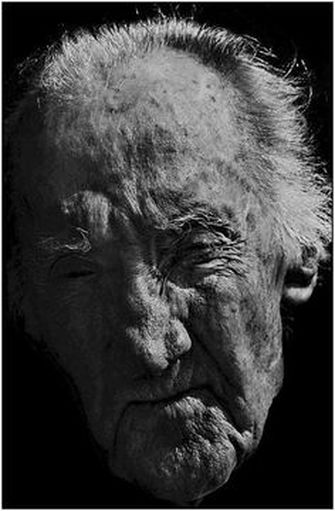
During his last night in the Tavern, Charles inquired from the oldest villagers there as to whom the rose of remembrance had been placed on the wooden bridge for and who was the woman who'd put it there. "If anyone can tell you, it will be the old Toby there, the parish grave digger that was", one of the pub patrons told Charles.
Toby was 88 years old and although he'd given up digging graves in his 72nd year of life, he still kept the parish records on behalf of the parish priest who hated any type of administrative work. Toby listened to Charles' tale and description of the woman visitor to the bridge with great interest.
"Can you tell me the name of the man remembered called Frank or the identity of the woman?" Charles asked Toby.
"I'm afraid I know of no Frank it could have been", Toby replied adding, "though it is the kind of mystery I won't be able to put down once you've got me to pick it up. Unfortunately, Sarah is not too uncommon a name 'round these parts! The one thing I do know is where to find out more tomorrow morning. If the anniversary of Frank's burial was today, then the parish records will throw some light on it at the break of another dawn, tomorrow. I'll check the parish records for you before you head on back to where you came from."
Toby was 88 years old and although he'd given up digging graves in his 72nd year of life, he still kept the parish records on behalf of the parish priest who hated any type of administrative work. Toby listened to Charles' tale and description of the woman visitor to the bridge with great interest.
"Can you tell me the name of the man remembered called Frank or the identity of the woman?" Charles asked Toby.
"I'm afraid I know of no Frank it could have been", Toby replied adding, "though it is the kind of mystery I won't be able to put down once you've got me to pick it up. Unfortunately, Sarah is not too uncommon a name 'round these parts! The one thing I do know is where to find out more tomorrow morning. If the anniversary of Frank's burial was today, then the parish records will throw some light on it at the break of another dawn, tomorrow. I'll check the parish records for you before you head on back to where you came from."
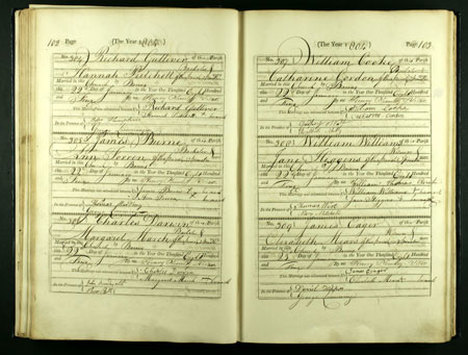
The next morning, Charles met up with Toby at the Parish Church. Toby had arrived a good ten minutes before Charles, and being highly curious to discover the identities, he'd already examined the records dating back twenty years. "Are you sure you heard her say, 'Frank'?" Toby asked. "The only recorded death on that anniversary date is Fran Southerby; the woman who killed Sarah Southerby. The only name that comes within a mile of Frank is 'Fran' and she was buried after her execution on August 10th. Could she have said Fran?'" Toby asked Charles again.
Charles replied, "It's possible, I suppose."
Charles replied, "It's possible, I suppose."

"For over forty years, Charles," Toby explained, "two women named Sarah and Fran Southerby lived in the old cottage on the Waterford Road out of Portlaw. They never mixed with the locals and preferred their own company. In fact, in all the years I knew them, I never once had a conversation with either of them. They never went out without each other and no villager had ever seen them alone. All of us thought the sisters strange and some thought them very odd indeed. The best way to say it is to say it straight; if they weren't close sisters, they were 'closet' sisters in sin; you know the sort of women I mean, suspicious spinsters of the most unnatural kind."
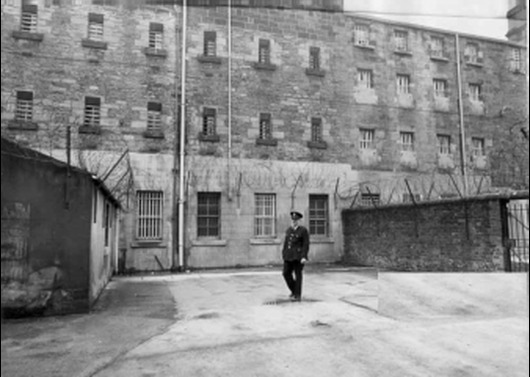
"Five years ago, Sarah Southerby got stomach cancer and for the better part of a year, she lived in terrible pain with this incurable illness which had gone too far before it was discovered. Sarah pleaded with Doc Brooks to give her a deadly dose of morphine to shorten her life and end her pain, but the doctor refused outright, quoting the physician's creed of 'do the patient no harm'. Four days after the doctor had refused Sarah her wish to give her a morphine overdose, Sarah was found dead. It was two days before her 63rd birthday."
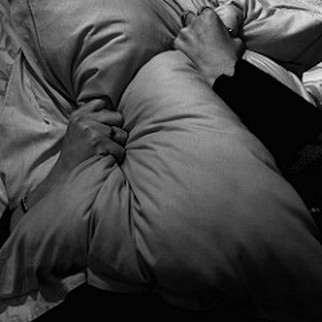
"The post-mortem revealed that Sarah had died from suffocation; probably by means of someone applying a pillow to her face and holding it down tight until she breathed her last. Fran Southerby refused to answer any police questions from start to finish and was subsequently found guilty at her trial in 'Waterford High Court' in 1959 of the murder of her lover, Sarah Southerby (who had seemingly changed her name by deed poll, forty years earlier). She was hanged by the neck for the offence of murder on August 10th, 1960 and was buried within hours of her execution. The strange thing is that Sarah had died on the very same day, precisely one year earlier to the day that Fran was hanged and buried. And, now that I come to think of it, it was five years ago yesterday, August 10th, when the first rose of that shade was fastened to the wooden bridge and has reappeared there every year since!"

Charles looked gobsmacked and exclaimed, "But however coincidental those dates are, what can it tell us? Surely you're not saying that the person visiting the 'Love Bridge' and placing the white and pink rose there for dead Fran Southerby was dead Sarah Southerby, the woman she killed by suffocation and was hanged for, are you?"
Toby simply smiled and replied, "I'm saying nothing except what the parish records say and what the facts presented, along with the description you have given me, seem to suggest. And by the way, not that I want to sway your judgement, but during the last year of her life, Doc Brooks said that when he made home visits to see the dying Sarah, he found that her hair had turned from auburn to pure white and that Fran had started putting it up in pigtails for Sarah, like one would a young girl, to remind her of her happy childhood years."
Toby simply smiled and replied, "I'm saying nothing except what the parish records say and what the facts presented, along with the description you have given me, seem to suggest. And by the way, not that I want to sway your judgement, but during the last year of her life, Doc Brooks said that when he made home visits to see the dying Sarah, he found that her hair had turned from auburn to pure white and that Fran had started putting it up in pigtails for Sarah, like one would a young girl, to remind her of her happy childhood years."

Later that day as Charles travelled back home to Milly, the story he'd heard and the explanation that 88 year old Toby had provided him with, although far stretched as it may seem, was the only plausible story to explain the Portlaw mystery of the 'Love Bridge'.
Toby had also told Charles that he had not seen remembrance roses of every annual Portlaw burial day, despite him having seen them every day for the past year. He added that if he wished to see the one day he'd missed, he'd have to wait until 1968. Toby went on to explain that during earlier years, when all the 363 burial days of the year had been taken up in the Church Calendar (No burials ever took place in Portlaw on Christmas Day and Easter Sunday), anyone dying within the Parish of Portlaw was buried in one of the neighbouring Catholic Churches in County Waterford.
Toby had also told Charles that he had not seen remembrance roses of every annual Portlaw burial day, despite him having seen them every day for the past year. He added that if he wished to see the one day he'd missed, he'd have to wait until 1968. Toby went on to explain that during earlier years, when all the 363 burial days of the year had been taken up in the Church Calendar (No burials ever took place in Portlaw on Christmas Day and Easter Sunday), anyone dying within the Parish of Portlaw was buried in one of the neighbouring Catholic Churches in County Waterford.

Once the burial dates had all been filled in the 'Portlaw Church Calendar', the only occasion that new burials could take place in Portlaw was every Leap Year on February 29th. Anyone dying during the month of February in a Leap Year, could be buried in a mass grave in the Portlaw cemetery on February 29th, but commemorative floral access to the 'Love Bridge' would be denied them individually. Instead, the Church would put up a wreath of different coloured roses to represent the combined loss of any loved one buried on February 29th in the Parish of Portlaw. Any single roses left in remembrance on the anniversary of their loved one's burial would be placed on their loved one's grave where their bones lay and not on the 'Love Bridge' from which their soul was believed to have had flown from this life to the next.

During the year that followed, Charles Marie and his sweetheart Milly married and before many more months had passed, Millie Marie gave birth to a healthy girl. The couple were simply over the moon with the addition to their family. Naturally, they needed to give no thought at all to her name, as both had settled upon the name of Rose Marie.
https://youtu.be/Q66yTkrzosI
Copyright: William Forde: February, 2017.

